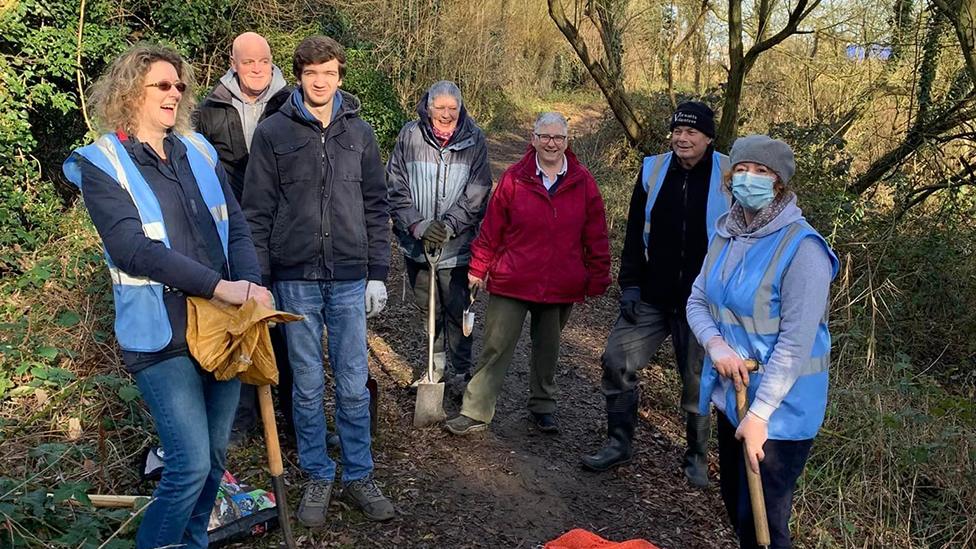Chick born at reserve for first time in history
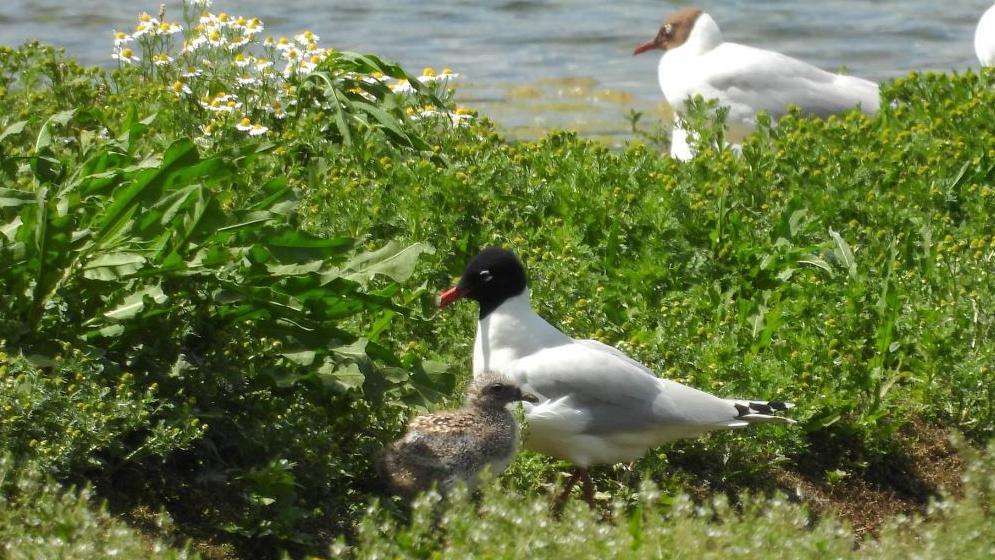
The Mediterranean gull chick, standing next to its mum, was first spotted by volunteers on 27 June
- Published
A species of bird has been born at a nature reserve in Lincolnshire for the first time in its history.
The Mediterranean gull chick was spotted by volunteers at Lincolnshire Wildlife Trust's Whisby Nature Park on 27 June.
The park said its the first time the species has hatched at the site, as nesting Mediterranean gulls have always failed at the incubation stage on prior occasions.
Estimated to be around a week old, senior warden Grahame Hopwood said the chick is being monitored and appears to be "strong and healthy".
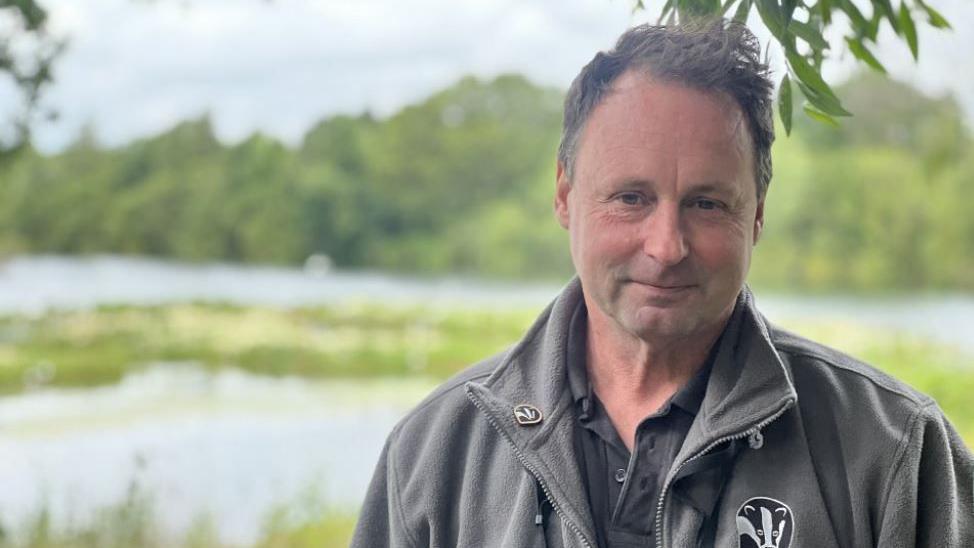
Warden Grahame Hopwood said the hatching of a Mediterranean gull chick is a "good record" for the reserve
The reserve has one of the largest black-headed gull colonies in Lincolnshire, which first attracted Mediterranean gulls to the site around 15 years ago.
This year marks the first time the species has returned to the reserve for around seven years.
Mr Hopwood said if the chick successfully fledges in three to four weeks, it will mark the first time this has also happened at the site.
'Chuffed to bits'
He said: "I was half expecting them to fail again. They came in very late and didn't start nesting until the third week in May.
"I'm chuffed to bits to see a chick. It's a very good record for Whisby Nature Park."
The Facebook post by Whisby Nature Park reads: "We're delighted to say that we have a Mediterranean Gull chick on the Thorpe Lake islands.
"The chick (pictured with mum who is a second summer bird) is just over a week old so there's still a way to go before fledging at about four weeks. Fingers crossed for it."
A very rare UK bird until the 1950s, the Mediterranean gull is now common throughout the South and East Coast of the country.
Follow BBC Lincolnshire on Facebook, X (formerly Twitter), external, and Instagram. Send your story ideas to eastyorkslincs.news@bbc.co.uk, external
- Published8 February 2024
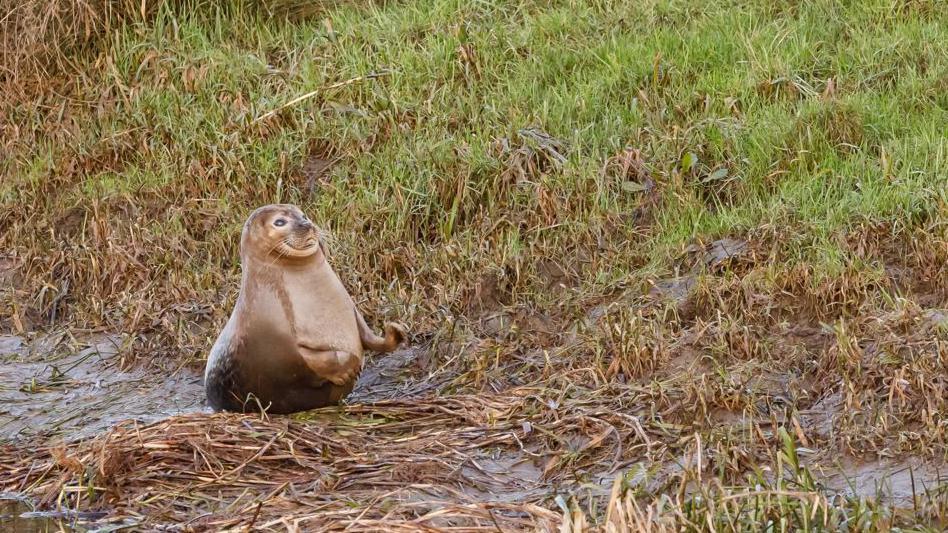
- Published15 June 2024
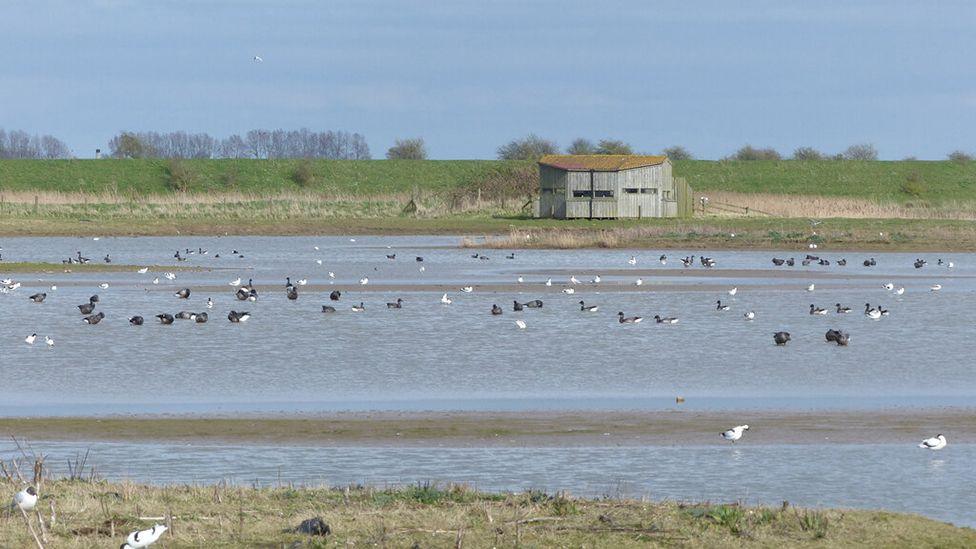
- Published18 January 2024
